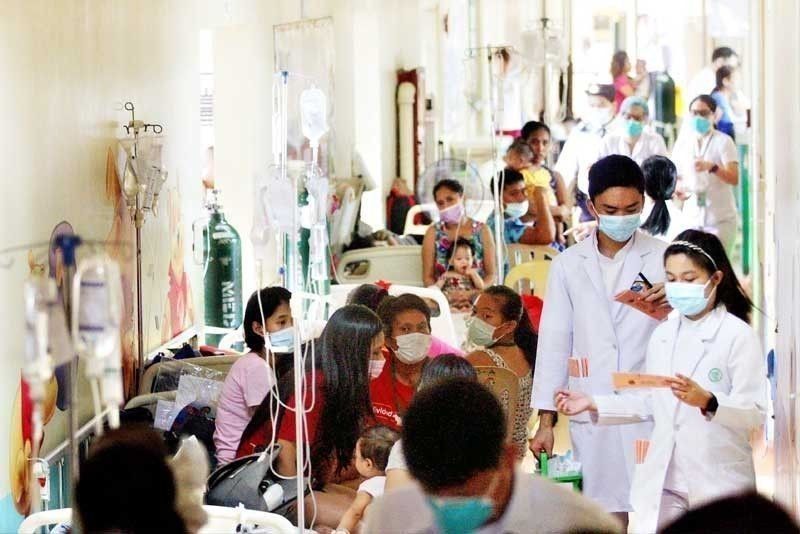Students in medical programs not required to attend in-person classes — CHED

MANILA, Philippines — The Commission on Higher Education said Monday that physical classes for students in medicine and health allied programs will not be mandatory, after government approved the resumption of its in-person learning months since it was cut abrupt by the pandemic.
Palace and CHED last week confirmed that President Rodrigo Duterte had given the go signal for the agency's proposal, saying the training of medical personnel has to continue amid the health crisis.
The move will cover schools with the said programs in areas under modified general community quarantine, as well as in institutions under GCQ with hospitals catering to COVID-19 patients.
Still, CHED Chairperson Prospero de Vera III said in a Laging Handa briefing that reporting to class physically will not be required. Also, only those 20 and above or in their junior to senior year would be allowed to participate.in the in-person classes.
"Ibig sabihin, 'yung mga estudyante na ayaw mag face-to-face kailangan bigyan ng alternatibo ng mga pamantasan," he said. "Kaya dapat sila'y mag-consult sa kanilang mga estudyante at magulang."
(Meaning to say, students who would not want face-to-face should be given alternatives by universities. That's why schools should consult students and parents.)
De Vera said apart from medicine, programs included in the resumption are nursing, physical theraphy, midwifery, medical technology and public health. "Doon lang sa mga subject na hindi puwedeng i-deliver virtually, [na] kailangan talaga ang mga estudyante na maki-interact sa pasyente."
(This will only be for subjects that cannot be done virtually, where students will really have to interact with patients.)
Protocols in place
It is yet unclear how many institutions would be allowed to resume physical classes, with De Vera saying application by universities to CHED and their regional IATFs is still ongoing.
But he has said that schools would immediately be closed for disinfection once a coronavirus case is confirmed among their students. Campuses should also pass an inspection by officials on the health protocols in place for the move.
"Doon sa ibang eskwelahan na naghanda early on, ngayong second semester magsisimula na sila," De Vera said. "'Yung mga iba hindi pa sila puwedeng magsimula hangga't aprubahan ng komisyon."
(Some schools who had prepared early on will be allowed to resume this second semester, while others cannot until they are approved by the commission.)
Local governments should also have a say whether schools in their areas are ready for in-person learning. De Vera said CHED will not clear schools if their local officials are against it.
Universities' coordination with LGUs was a call by a private educators' group back in December. For the Coordinating Council of Private Educational Associations, protocols should include contingency measures to identify which facilities would students be brought to in the event of an infection as well as other adjustments.
"We know that the readiness of each local government unit varies, so that should be a big consideration in making a decision, their role in this," said lawyer Noel Estrada, Cocopea's managing director.
Among universities that De Vera said have been allowed to hold physical classes are University of the Philippines in Manila, Our Lady of Fatima in Valenzuela, and Ateneo de Manila University in Quezon City.
The approval comes months after the coronavirus task force in October 2020 approved the face-to-face medical internship at UP Manila's Philippine General Hospital.
- Latest
- Trending

































